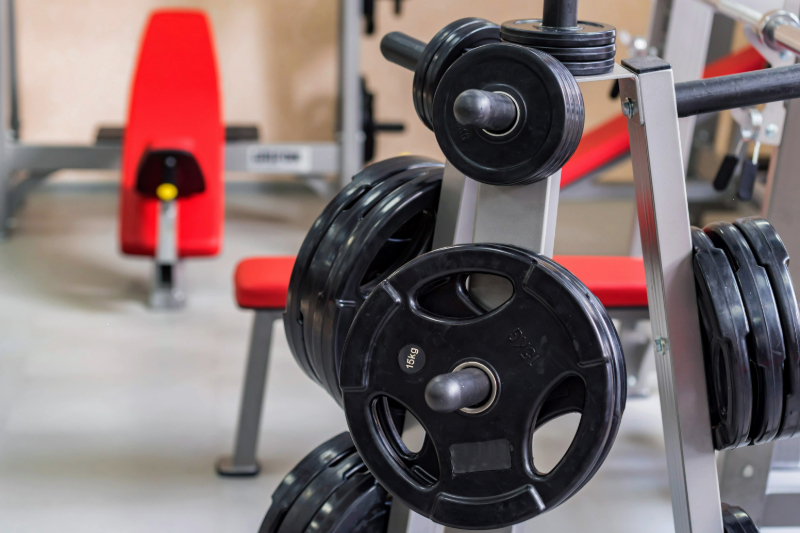
There is a lot of misinformation in the media regarding muscle growth and fitness. Social media influencers will try to sell their followers on a particular diet or lifestyle, which often includes biased or inaccurate information. With all the different diets, lifestyles, and exercise regimens out there, it can be confusing to figure out what is fact and what is fiction.
Current nutrition trends portray protein as the hero and carbohydrates as the villain when it comes to #gainz. While protein is required for muscle growth, carbohydrates also play a vital role!
Carbohydrates
Carbohydrates are long chains of sugar molecules that our bodies use as a main energy source. The sugar in carbohydrates is converted into glucose, which is stored in our muscles as glycogen until we need it! When we exercise, the stored glucose is converted to energy. We can think of glucose as gas for your car (or your body). Just as your car needs gas to keep running, your body needs glucose to function optimally! If we use up our glycogen stores, our bodies will start breaking down muscle for energy.
We can preserve glycogen stores by fueling before, during, and after workouts. This prevents the use of muscle protein for energy which hinders athletic performance.
The American College of Sports Medicine recommends 6 to 10 g/kg/day of carbohydrates. So, if a person weighs 140 pounds (63.5 kilograms), they would need to eat 381-635 grams of carbohydrates daily.
Today’s Dietitian recommends following macronutrient goals:
- 60% carbohydrates, 20% protein, and 20% fat for cardiovascular athletes
- 45% carbohydrates, 30% protein, and 25% fat for weight training athletes
- 55% carbohydrates, 25% protein, and 20% fat for both cardiovascular and weight training athletes
The most important thing is finding a balance that works for your lifestyle, which can be an easier and safer journey with the help of a Registered Dietitian Nutritionist.
So, what would happen if we didn’t eat carbohydrates at all?
Foods like oats, brown rice, fruit, lentils, and vegetables are made of complex carbohydrates with a high nutritional value. Cutting out these foods will cause a person to experience nutrient deficiencies. Even cutting out simple carbohydrate sources like white rice, pastas, and breads will leave you without a significant source of energy if you aren’t getting enough carbohydrates from other places.
Nutrient and energy deficiencies can cause fatigue, increased hunger, hair and nail loss or damage, and other illnesses. Exercising and meeting your goals would become increasingly more difficult.
Cutting out or severely reducing your intake of carbohydrates also promotes an all-or-nothing mindset regarding food. Eventually, the restriction can lead to feelings of lack of control around restricted foods, which may make you feel like you need to eat large amounts to satisfy your intense cravings. This cycle of binging and restricting can hurt our mental, emotional, and physical health.
You are much more likely to achieve your goals by supporting your body with balanced nutrition.
Protein
Proteins are chains of amino acids that your body uses to build muscle. When increasing your intake, it is important to note the source of protein. Protein sources such as fish, chicken breast, and turkey are great options for building lean muscle. For vegetarians, beans, nuts, soy, peas, and lentils are lean protein options.
Protein is glorified for many reasons. It is one of our main food groups, it supports muscle building and recovery, and it provides lasting energy. While protein definitely gets the credit it deserves, there is something to be said for moderation.
A diet too high in protein is associated with high saturated fat content, high cholesterol, and heart disease. Diets too high in protein may also lead to nutrient deficiencies in other food groups that support overall health. The recommendation for active adults is to get 10% of your daily calories from protein.
For most people, 0.8g/kg of body weight of protein per day is recommended. For a recreational athlete, 1.1 to 1.4 g/kg of body weight per day is recommended. Endurance athletes should be in the range of 1.2 to 2 g/kg of body weight, and strength athletes should be in the range of 1.4 to 2 g/kg of body weight.
Most research suggests that the body can only absorb 20-25 grams of protein at a time, and any amount over that will be used as energy or stored as fat. With this in mind, spread your protein consumption throughout the day to increase absorption and optimize your #gainz.
How to separate fact from fiction
When reading health or nutrition information, whether from social media or internet articles, be on the lookout for these red flags:
Advice based on personal experience 🚩
Having a successful bodily transformation, being an athletic trainer, or having a passion for nutrition does not qualify someone to advise others about losing weight or what to eat.
A lack of proper qualifications 🚩
Look out for people with proper qualifications such as Registered Dietitians (R.D.), Licensed Dietitians (L.D.), or Registered Dietitian Nutritionists (R.D.N.).
These titles are backed up by years of nutrition science education and maintain a code of ethics.
The influencer recommends cutting out an entire food group 🚩
If they say no fat, no sugar, no carbs, etc., they are likely giving you bad advice.
Conclusion
Muscle growth results from using and fueling the muscles with a diet rich in carbohydrates and protein. Protein provides our bodies with energy and helps to build muscle mass. Carbohydrates energize our muscles and ensure our bodies don’t break down muscle tissue for fuel. When planning your workout snacks, be sure to include both protein and carbohydrates for proper fueling.

